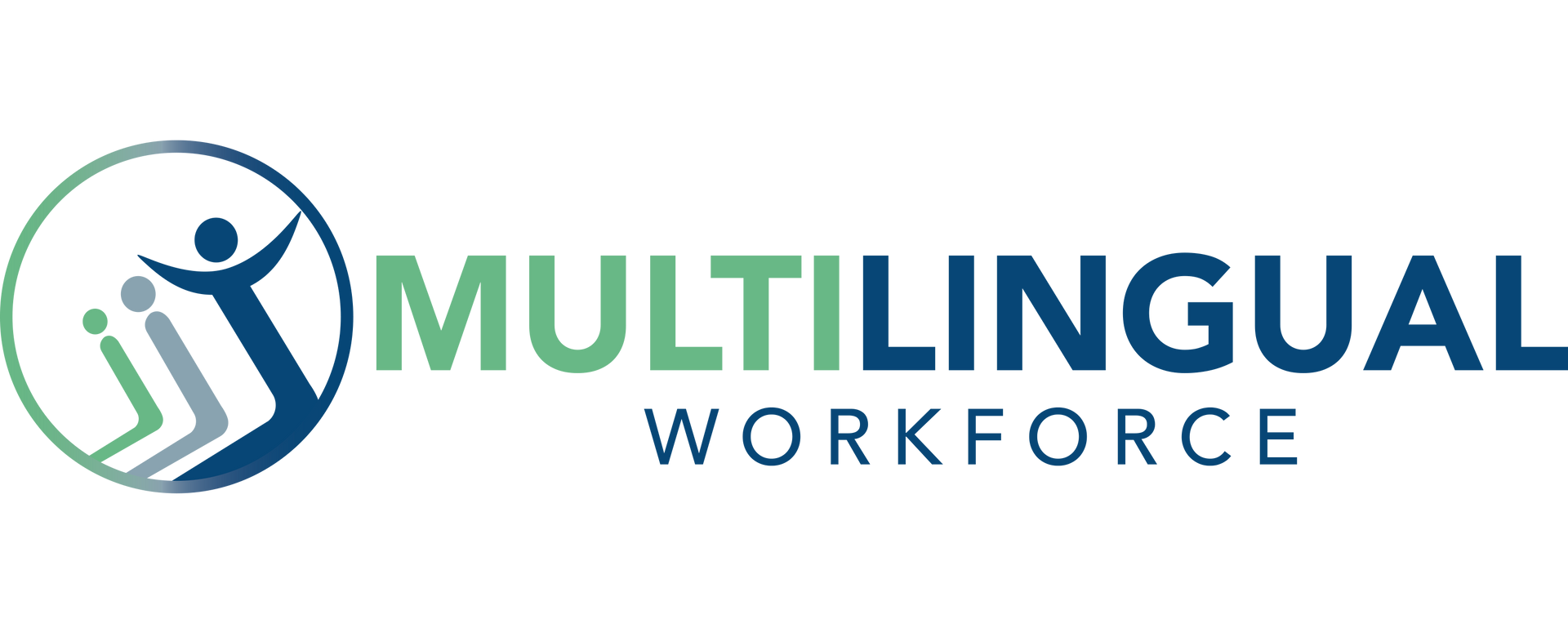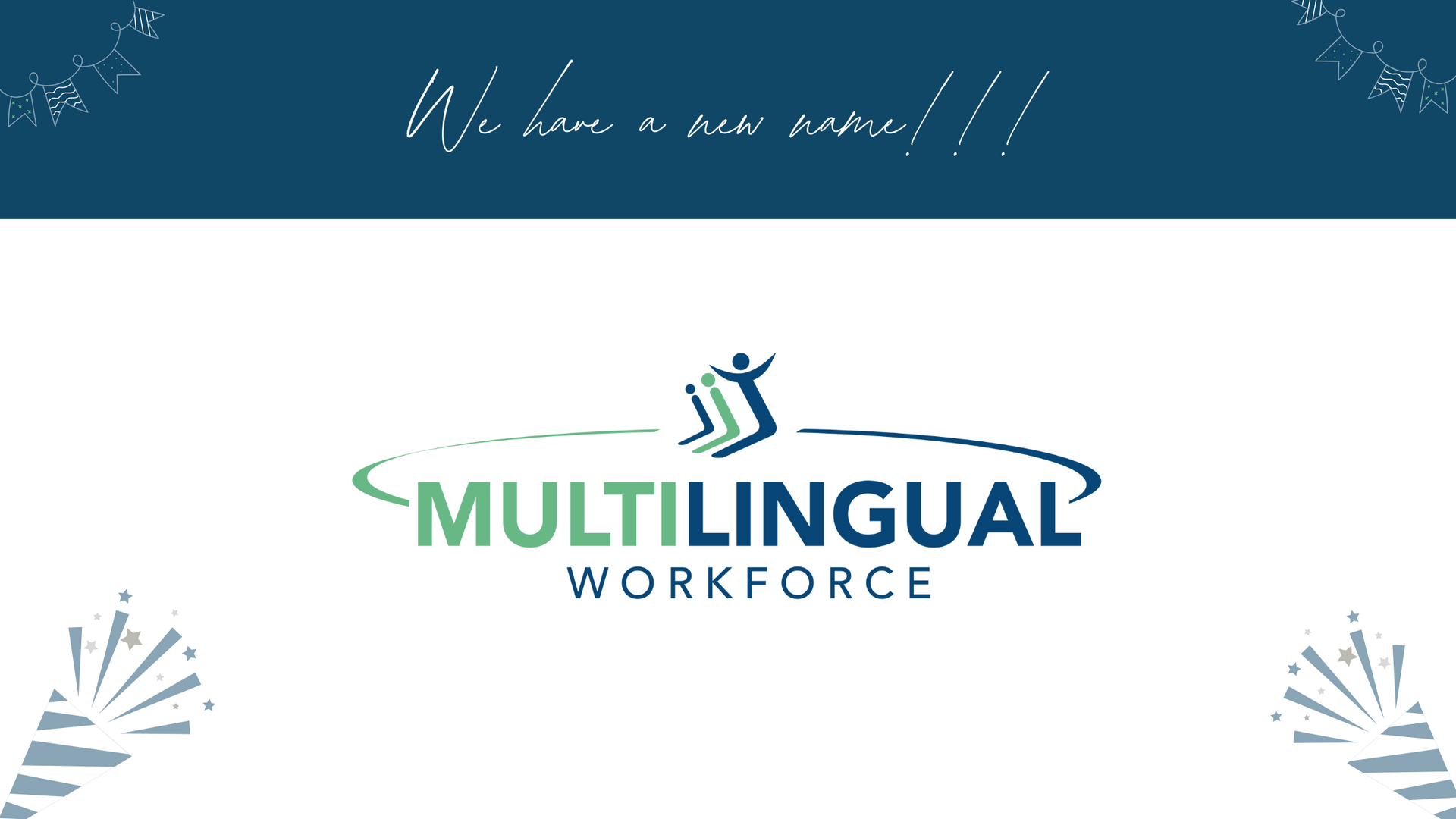Teaching English to New Hires: Working Towards Seamless Integration
In today’s global workplace, language isn’t just a tool for communication—it’s the bridge that connects teams, drives innovation, and ensures everyone is on the same page. But for many new hires, especially those coming from diverse cultures/backgrounds, mastering English can be a daunting challenge. Not only this, but it can be equally daunting for companies to understand how to hire employees who don’t speak English well. So, how can companies ensure all of their employees thrive in an English-centric environment? It starts with understanding the power of language training and making it a cornerstone of your onboarding process. English isn’t just nice to have—it’s a game-changer for both your hires and your business.
Helping employees improve their English doesn’t have to only happen in a formal English class environment.
In fact, providing opportunities for employees to build their English language skills should become a core part of your company culture. One way to get started is to teach some basic English words during an employee’s first few days. When completing new hire training with individuals who don’t speak English, many trainers and HR staff members resort to translating all the information. However, while translation can help communicate the concepts, it’s also equally important for employees to learn at least some English words as well.
Consider this example. One of our clients decided to hire a non-English speaking individual for the janitorial department. To ensure that the employee grasped the training content, they had the new hire training translated into his native language. As a result, the employee felt confident in the expectations and methods of his basic tasks. One day, he was mopping the floors in a long hallway after hours. Another employee started walking down the hallway at the other end, deep in thought, and unaware of the “wet floor” safety sign. The new hire, who didn’t speak English, didn’t know how to call out and tell the other employee to be careful and that the floor was wet. While he had been trained well on how to properly mop the floors and ensure safety on wet floors, his lack of English language still created a significant safety risk for his coworker. This almost caused an accident in which one or both employees could have been hurt, fallen, etc.
Because the proper English words were not taught, this employee probably had other similar instances in which it became increasingly difficult to communicate in a fast-paced environment. Even though the concepts were understood, it didn’t eliminate the need for English language in the workplace environment.
When companies start teaching key English words for the workplace early in the new hire process, they will see several benefits, both for companies and their employees.
Benefits of Teaching English Words to New Hires
- Improved Communication: English is the primary language used in the American workplace, so it’s important to give your employees opportunities to practice the language. When this is provided in their new hire training, employees are given a head start in gaining confidence in workplace English, and oftentimes, it leads to less misunderstandings and errors. This impact can be seen in the early stages of the employee’s career, but also has long-term effects on their ability to communicate within the company. Improved communication leads to better team collaboration as employees are able to more accurately communicate concerns, instructions, accidents, etc.
- Increased Productivity: As a result of improved communication between employees, companies who teach English words to their new hires and seasoned employees see increased productivity throughout the workplace. Communication becomes more streamlined, which allows for company processes to work more efficiently and in a timely manner. When companies invest in training for new hires to learn English at the beginning of their tenure at the company, they are also able to save time spent teaching these same words in the plant floor, workroom, warehouse, yard, etc.
- Enhanced Workplace Safety: According to research collected by OSHA, workplace accidents resulting from a language barrier in the workplace make up about 25% of reported accidents. When employees are able to communicate effectively in English, they are able to more quickly address these accidents, whether by reporting them or working with a colleague to fix the problem. This also helps to reduce liability for the company and to lessen the number of potential accidents that could occur. Workplace safety is a big concern for many of the companies we’ve worked with who struggle with this language barrier, and it’s an important issue to consider when beginning to train your new hire employees.
- Stronger Employee Retention: When you invest in your employees and their language learning, this shows a commitment to employee growth that benefits both parties. Employees who receive this type of support in the workplace are often seen to be more loyal to their company, which also helps to decrease turnover. Not only this, but many immigrant or refugee employees also come to the country with other working-class family members. We’ve seen many companies hire one family member, which naturally turns into opportunities to hire their family members or friends to fill other open positions when the company treats the original employee well.
By proactively addressing the language barrier early, companies are able to stop miscommunication, workplace accidents, and increased turnover
before
it becomes a problem. Employees are also given better footing from which they can begin their new position, setting them up for success as they continue to learn the language.
Think back to the employee in the janitorial position who couldn’t call out a warning in English. By including in the new hire training some basic safety phrases for communicating caution (such as, “Whatch out!,” “Be careful!”) the company would have better prepared him to communicate with coworkers when he was in the middle of a task that required caution from others, such as mopping the floor, or cleaning up a spill. So, what are some other ways we can improve our English training to new hires knowing about these benefits and risks?
Strategies to Incorporate Language Learning During Onboarding
Incorporating this English language learning into your new hire training can be done seamlessly with a little time and effort up front. Here are a few strategies we recommend and have seen work well in the companies we’ve worked with.
- Give new hires a list of the most common tools/materials/machines/duties that will be used in their job. On this list, include a photo and the English word, and go over these words with new hires and give them a copy to take with them. Start with 10-15 words that are tailored to the individual’s role, and add more words as needed. This is a tool you can continue to use and refer to even after the employee has been working with the company for a few months. (You can find a free template here to help you create this tool for your employees!)
- Include English words on your PPT slides. Even just 1-2 words in large letters on the slides you typically use can be a huge help to language learners. They will be able to begin associating these words with the concepts you are explaining. If you do a portion of the training in Spanish or have it translated, you should still be teaching a key English word along with these translated concepts. While providing some of the training in the employees’ native languages can be helpful, it shouldn’t be relied upon for complete understanding. Translations can be inaccurate, and over-translating does not allow for better communication in English in the future. Avoid overloading your employees with translation, but instead, use their native language as a tool in order to help them learn English alongside the words they’re used to seeing.
- Pair new hires with a mentor, peer or coach who can help them learn the English words they need for the job. Encouraging interaction in this way allows for a safe place for employees to practice their English in a more interactive manner than some new hire training might allow. This is a great way companies can encourage their employees to gain confidence speaking and listening in English.
- Offer a new hire English class. This class environment allows for another safe place for employees to gain confidence using the English they are learning. The classes can be provided by an outside company (like Multilingual Workforce) or in our unique train-the-trainer format, where your internal team can deliver the material in a more flexible set up.
We’ve worked with many companies who are looking to improve their onboarding processes to better support their non-English speaking employees! If you’d like to learn more about our services, or schedule a free consultation with us, send us a message! We look forward to hearing from you!












